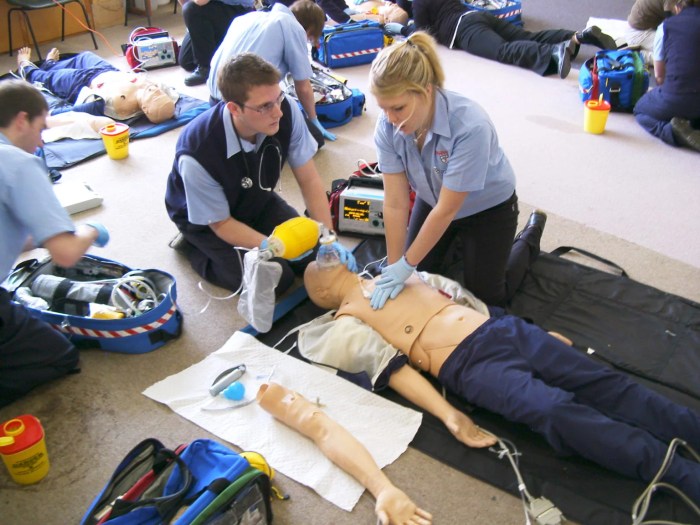Can you be an EMT with mental illness? The answer to this question is not always straightforward. While some mental health conditions may impact an EMT’s ability to perform their job effectively, others may not. This article will explore the employment policies, mental health impact, support systems, stigma, and accommodations related to EMTs with mental illness.
EMT (Emergency Medical Technicians) are first responders who provide critical medical care in emergency situations. Their duties include assessing and stabilizing patients, administering medication, and transporting patients to the hospital. Due to the nature of their work, EMTs are often exposed to traumatic events that can take a toll on their mental health.
Employment Policies

Employment policies regarding mental health disclosures during EMT hiring processes vary across organizations. Some employers may require candidates to disclose any mental health conditions during the application process, while others may only ask about mental health conditions that may impact job performance.
Common mental health conditions that may impact EMT employment include post-traumatic stress disorder (PTSD), depression, and anxiety. These conditions can affect an EMT’s ability to perform their duties safely and effectively.
Discriminating against EMT candidates with mental illness is illegal under the Americans with Disabilities Act (ADA). Employers are required to make reasonable accommodations for employees with disabilities, including mental health conditions.
Mental Health Impact on EMT Performance: Can You Be An Emt With Mental Illness

Mental illness is common among EMTs. A study by the National Institute for Occupational Safety and Health (NIOSH) found that 25% of EMTs have symptoms of PTSD, and 15% have symptoms of depression.
Mental health conditions can impact EMT performance in several ways. For example, EMTs with PTSD may experience flashbacks or nightmares that interfere with their ability to concentrate. EMTs with depression may have difficulty staying motivated or making decisions.
Case studies have shown that mental illness can have a significant impact on EMT performance. For example, one study found that EMTs with PTSD were more likely to make mistakes and have accidents.
Support Systems for EMTs with Mental Illness
There are a number of resources available to EMTs struggling with mental health issues. These resources include peer support groups, mental health professionals, and employee assistance programs.
Peer support groups provide a safe and supportive environment for EMTs to talk about their experiences and share coping mechanisms. Mental health professionals can provide individual therapy and medication management.
Employee assistance programs offer a variety of services, including counseling, financial assistance, and legal advice.
Stigma and Discrimination

There is a stigma surrounding mental illness in the emergency medical services field. This stigma can prevent EMTs from seeking help for mental health issues.
The stigma surrounding mental illness can have a negative impact on EMTs. EMTs who are struggling with mental health issues may be afraid to seek help because they fear being judged or discriminated against.
There are a number of things that can be done to reduce stigma and promote a more inclusive work environment for EMTs with mental illness. These include:
- Educating EMTs about mental illness
- Providing mental health training for EMTs
- Creating a supportive work environment
- Challenging the stigma surrounding mental illness
Accommodations and Modifications

Reasonable accommodations can be made for EMTs with mental illness. These accommodations may include:
- Flexible work schedules
- Modified job duties
- Access to mental health counseling
- Time off for mental health appointments
The Americans with Disabilities Act (ADA) requires employers to make reasonable accommodations for employees with disabilities, including mental health conditions.
Accommodations can help EMTs with mental illness perform their jobs safely and effectively. For example, a flexible work schedule can help an EMT with PTSD avoid triggers that may cause flashbacks.
FAQ Insights
Can EMTs with mental illness perform their job effectively?
Yes, EMTs with mental illness can perform their job effectively with proper support and accommodations.
What are some common mental health conditions that may impact EMTs?
Common mental health conditions that may impact EMTs include PTSD, depression, and anxiety.
What resources are available to EMTs struggling with mental health issues?
Resources available to EMTs struggling with mental health issues include peer support groups, mental health professionals, and employee assistance programs.